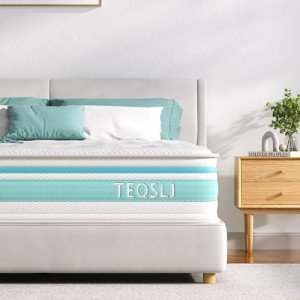7 Things You've Never Known About Memory Foam Bed
The Ultimate Guide to Memory Foam Beds: Comfort and Considerations
Memory foam beds have actually transformed the sleep industry, offering unequaled support and comfort that guarantee a relaxing night's sleep. This article dives into the many benefits of memory foam mattresses, crucial factors to consider for potential buyers, and responses often asked questions about this popular bedding option.
Understanding Memory Foam
Memory foam, initially developed by NASA in the 1960s, is a viscoelastic material that conforms to the shape of the body when pressure is applied. The foam then returns to its initial shape once the pressure is launched. This unique particular offers several advantages for those looking for better sleep quality.
Secret Characteristics of Memory Foam
Particular
Description
Viscoelastic
Softens in reaction to temperature and weight, offering tailored support.
Pressure Relief
Distributes body weight uniformly, minimizing pressure points and prospective pain.
Toughness
Typically long-lasting, with lots of mattresses lasting over a decade when looked after correctly.
Motion Isolation
Takes in motion, making it an ideal choice for couples, as one partner's movements are less most likely to disrupt the other.
Hypoallergenic
Typically resistant to allergens such as dust mites and mold, making it suitable for allergic reaction patients.
Benefits of Memory Foam Beds
Memory foam beds provide different benefits that can enhance sleep quality and overall wellness. Here are a few of the most engaging benefits:
Enhanced Comfort: Memory foam molds to the body, supplying individualized convenience that relieves pressure points.
Back Support: The material's ability to shape assists in keeping a neutral spine throughout sleep, which can substantially reduce neck and back pain.
Reduced Motion Transfer: Memory foam's special homes take in movement, making it an excellent option for light sleepers and couples.
Temperature level Regulation: Many memory foam mattresses now include cooling innovations that assist manage temperature during sleep, combating the heat retention typically related to traditional memory foam.
Long Lifespan: With appropriate care, memory foam mattresses can last upwards of 10 years, offering exceptional value for money.
Range of Options: Available in numerous firmness levels, densities, and densities, memory foam mattresses cater to varied sleeping choices.
Factors to consider When Choosing a Memory Foam Bed
While memory foam beds have lots of advantages, they may not be for everyone. Here are some aspects to consider when making a purchase:
Firmness Level: Memory foam mattresses been available in different firmness levels. Consider personal preference and body weight, as heavier individuals might need firmer alternatives for adequate support.
Heat Retention: Traditional memory foam can trap heat. Try to find models with the most recent cooling innovations or ventilated designs if temperature sensitivity is a concern.
Smell: Some memory foam mattresses discharge a noticeable odor upon unboxing, typically described as “off-gassing.” This odor usually dissipates within a few days.
Weight: Memory foam mattresses can be heavy and cumbersome to move. Make sure that the style of the mattress and the bed frame match your needs.
Cost: While memory foam mattresses are readily available in different rate varieties, invest in a reliable brand name to guarantee quality and resilience.
FAQs About Memory Foam Beds
1. How long does a memory foam bed last?
- With appropriate care, memory foam mattresses can last anywhere from 7 to 15 years, depending upon the quality and usage.
2. Are memory foam mattresses helpful for side sleepers?
- Yes, memory foam mattresses are typically advised for side sleepers due to their ability to ease pressure on the shoulders and hips.
3. Can I turn my memory foam mattress?
- The majority of memory foam mattresses are developed to be one-sided and need to not be turned. High-Quality Memory Foam Mattress is advised to promote even use.
4. Do memory foam mattresses make you hot?
- Standard memory foam mattresses tend to maintain heat, however numerous modern designs include cooling gel layers or breathable materials to help manage temperature.
5. What is the very best density for a memory foam mattress?
- Usually, a mattress thickness in between 10 to 12 inches is recommended for a lot of sleepers, however specific preference and body weight should direct the choice.
Memory foam beds represent a substantial improvement in sleep innovation, offering substantial advantages such as pressure relief, motion isolation, and remarkable convenience. While it is necessary to consider personal preferences, possible downsides, and particular requirements before purchasing, numerous individuals discover that buying a quality memory foam mattress improves their sleep experience considerably.
For those still exploring their choices, visiting a showroom or experimenting with different mattresses can supply invaluable insights. With the best option, a memory foam mattress can lead to more restful nights and invigorated mornings.
